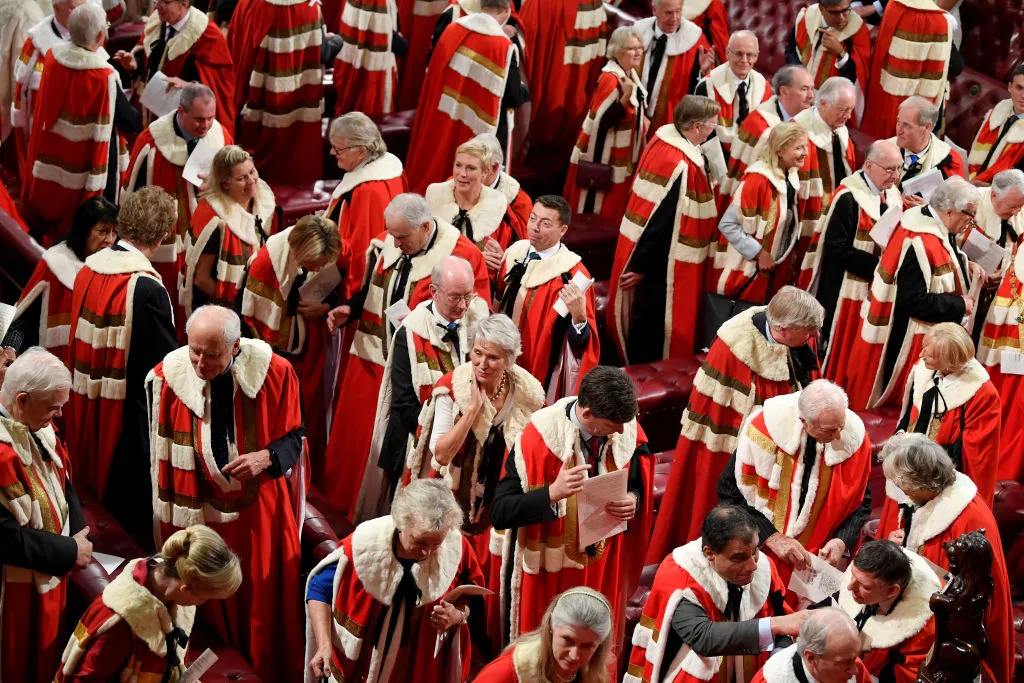Prime Minister Keir Starmer will sweep away the remaining hereditary peers as the first step to reforming the House of Lords.
New legislation will end what officials called the “outdated and indefensible” presence of members of the upper chamber who are there by right of birth.
The Government also plans changes to the Commons, with the King setting out proposals for a “modernisation committee” as he opened the new session of Parliament.
An official briefing paper on the House of Lords (Hereditary Peers) Bill said that in the 21st century, there should not be almost 100 places reserved for individuals born into certain families, with the seats effectively reserved for men.
The Lords reforms under Tony Blair reduced the number of hereditary peers to 90, plus the Earl Marshal and Lord Great Chamberlain.
That was only intended as a short-term compromise, but the situation has persisted for 25 years.
Hereditary peers are also exempt from the vetting checks carried out when life peers are proposed.
Under the plans, the hereditary roles of Earl Marshal and Lord Great Chamberlain would again be exempt because of the constitutional duties they perform on state occasions.
The legislation, which was promised in Labour’s election manifesto, is billed as the first step in a process of modernisation of the UK’s political system.
Another manifesto commitment, a mandatory retirement age of 80 in the Lords, has not yet been put forward.
The King’s Speech also remained silent on Labour’s plans to lower the voting age to 16 – Sir Keir had earlier indicated that was because the priority for his administration was putting forward measures to secure economic growth.
Delivering the King’s Speech in the House of Lords, Charles indicated there would be changes at the other end of Parliament too.
A “modernisation committee” of the House of Commons will be tasked with “driving up standards, improving work practices and reforming procedures”.
He also said the Government would “strengthen the integrity of elections and encourage wide participation in the democratic process”.
Leader of the Opposition in the House of Lords, Lord True, warned against the Government’s proposed plans for the upper chamber in his response to the King’s Speech.
The Conservative peer said the Labour Party had the “political right” to remove hereditary peers, but also “a constitutional responsibility to say what follows”, which he said they did not do in 1999, nor have they done today.
Referring to hereditary peer by-elections, which decide which eligible aristocrat should replace one of the 91 hereditary peers after a death, he said: “No-one inherits a seat in our House anymore and no hereditary peer has the right by birth to sit and vote in this House.
“Our hereditary colleagues who remain are not the port-swilling backwardsman of ancient legend, they are people we know, some of the most active among us, some of the voices we most respect.”
Noting the work of hereditary peers who are “dedicated frontbenchers on both sides, deputy speakers and some of our most assiduous backbenchers all around the House”, he asked: “Can we afford their loss?”
Lord True also criticised the Government’s plan to consult on introducing a retirement age of 80 for peers, arguing that “we can ill-afford to lose such voices of experience” and that it would mean “ejecting a great deal of accumulated wisdom that makes this house different from the Commons.”
He told peers that ousting both hereditary peers and those aged 80 or over by 2029 would see 390 peers cut from their ranks, including 107 crossbenchers, which is 67% of their number.
The Liberal Democrats, meanwhile, lamented that Labour is not planning “more fundamental” reform, but welcomed the proposed measures.
The Liberal Democrats’ leader in the Lords, Lord Newby, said: “We remain of the view that all legislatures should be elected, but we accept that this Government will not move in this direction.
“In the absence of fundamental reform, we welcome the plan to abolish the remaining hereditary peers and to introduce a retirement age.
“I am, however, a bit worried that only a consultation is planned on the latter change. There is a well known equation that relates to Lords reform, namely that reform proposals plus consultation equals inaction.
“We will therefore be pressing the Government for a speedy timetable for any consultation and for the resulting reform.”
Leader of the House of Lords, Baroness Smith of Basildon, said of Lord True’s concerns: “Most of the issues he spoke about were actually in the manifesto, not in this King’s Speech.”
And on Lord Newby’s comments about a consultation, she said she thinks it is “helpful” for the Lords to have a chance to discuss the issue.
The new Lord Privy Seal added: “That’s not about delay, I think its courtesy and consideration to make sure we get things right.”





















